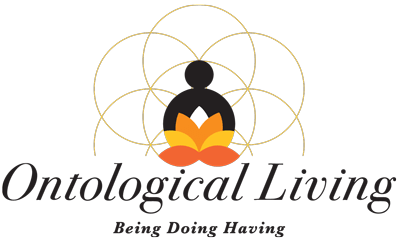Learning to Navigate Your Own Brilliance
Trevor Noah from the Daily Show, recently shared a profound if not easily passed over insight:
The world needs learners, not knowers.
How might we unpack this helpful distinction?
Learners begin and begin again.
Learners cultivate the courage to re-evaluate steadfast paradigms and the habituated practices that emerge from a particular worldview.
Learners embrace their “un-knowing,” and make room for developing the skills to navigate the unknown.
Above all, this “making room” consists in humility, which in early Plato, through the character of Socrates, consisted in “wonder” and “awe” at coming against the blind-spots and unarticulated layers of what we don’t clearly see or have not appropriated into a workable and shareable understanding.
On the other hand, knowledge—understood as final and definitive truth—is a carrot, a regulative ideal that draws one toward a presumably final destination.
So to know is, in essence, to be finished.
But to learn is to remain in uncertainty, and to remain humble in one’s recognition that to see one thing from a perspective is to remain outside of a different perspective—to recognize one’s inherent limitations.
But learning also means taking a stand—remaining committed to the process and value of exploring. This means listening, evaluating, re-assessing, and then acting again from a re-situated view of events.
Learning is dynamic, and it begins with confronting one’s blind-spots.
It’s also paradoxical, because blind-spots are precisely those things that remain un-illuminated.
So the best hope we have in revealing our blind-spots is to re-situate ourselves, and, through mindful and introspective listening, shift our view. Our emotional and intellectual imagination, our integrity, and willingness to listen are key forces that promote such shifts.
Now, can we coach as learners rather than knowers?
Can we get our hands dirty with listening rather than controlling?
The value of listening lies in the community it builds, because it does not presume to have answers so much as possibilities for committed (and I stress, “committed” and therefore, serious) exploration. Deeply listening also means that one has “communed” with another, and has already in a basic sense opened the door for connection.
On the other hand, needing to know and calculate and control navigates the world through anxious projections. Anxiety does not cultivate skills or prepare one for the unknown, nor does the presumption that one already knows what’s in store. Anxiety limits and shrinks the world.
Can we remain stable and steadfast in the midst of uncertainty and groundlessness?
The “emptiness” stressed in the tradition of Mahayana Buddhism by Bodhisattvas (“warriors” of mindfulness) speaks to grounding oneself in groundlessness.
And this is not cynicism or passivity—“groundlessness” speaks to open possibilities, to a space for shaping and creating what is required in the moment and for the moment.
So let us learn together, invent together, listen together, and take action together—
We can leave knowing for that final resting day.
–May this help illuminate what was always there to begin with: infinite abundance!
© 2017, Ideal Coaching Global, Kevin Perry & Bettie J. Spruill









At the learning of non-taxonomic relations step, relationships are extracted, which do not express any sub- or supersumption. Such relationships are e.g. works-for or located-in. There are two common approaches to solve this subtask. The first one is based upon the extraction of anonymous associations, which are named appropriately in a second step. The second approach extracts verbs, which indicate a relationship between the entities, represented by the surrounding words. But the result of both approaches has to be evaluated by an ontologist. At the ontology population step, the ontology is augmented with instances of concepts and properties. For the augmentation with instances of concepts methods, which are based on the matching of lexico-syntactic patterns, are used. Instances of properties are added by application of bootstrapping methods, which collect relation tuples.
Hello! Cool post, amazing!!!
Pretty! This has been an incredibly wonderful article. Thank you for supplying this info.
Hi there, I enjoy reading through your article. I wanted to write a little comment to support you.
Amazing!!
Fortunately, since I am very old, this article did not present me with new information.
–
However, this article did remind me, which is important in and of itself because we must constantly check our feet to ensure the ground is still there.